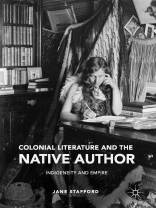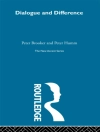This book is the first study of writers who are both Victorian and indigenous, who have been educated in and write in terms of Victorian literary conventions, but whose indigenous affiliation is part of their literary personae and subject matter. What happens when the colonised, indigenous, or ‘native’ subject learns to write in the literary language of empire? If the romanticised subject of colonial literature becomes the author, is a new kind of writing produced, or does the native author conform to the models of the coloniser?
By investigating the ways that nineteenth-century concerns are adopted, accommodated, rewritten, challenged, re-inscribed, confronted, or assimilated in the work of these authors, this study presents a novel examination of the nature of colonial literary production and indigenous authorship, as well as suggesting to the discipline of colonial and postcolonial studies a perhaps unsettling perspective with which to look at the larger patterns of Victorian cultural and literary formation.
Table of Content
1. Introduction: ‘I adopt the language of the poet’.- 2. Littleness, Frivolity, and Vedic Simplicity: Toru Dutt, Sarojini Naidu, and Mr Gosse.- 3. ‘Constant reading after office hours’: Sol Plaatje and Literary Belonging.- 4. ‘The genuine stamp of truth and nature’: voicing
The History of Mary Prince.- 5. ‘Culture’s artificial note’: E. Pauline Johnson, Tekahionwake, and her Audiences.- 6. ‘Pressed down by the great words of others’: Wiremu Te Rangikaheke and Apirana Ngata.- 7. Conclusion: Secret Fountains and Authentic Utterance.- Bibliography.- Index.-
About the author
Jane Stafford is Professor in the English Programme of Victoria University of Wellington, New Zealand. She is the co-author of
Maoriland: New Zealand Literature, 1872-1914 (2006), the co-editor of
The Auckland University Press Anthology of New Zealand Literature (2012), and the co-editor of volume 9 of
The Oxford History of the Novel, The World Novel to 1950 (2016).












